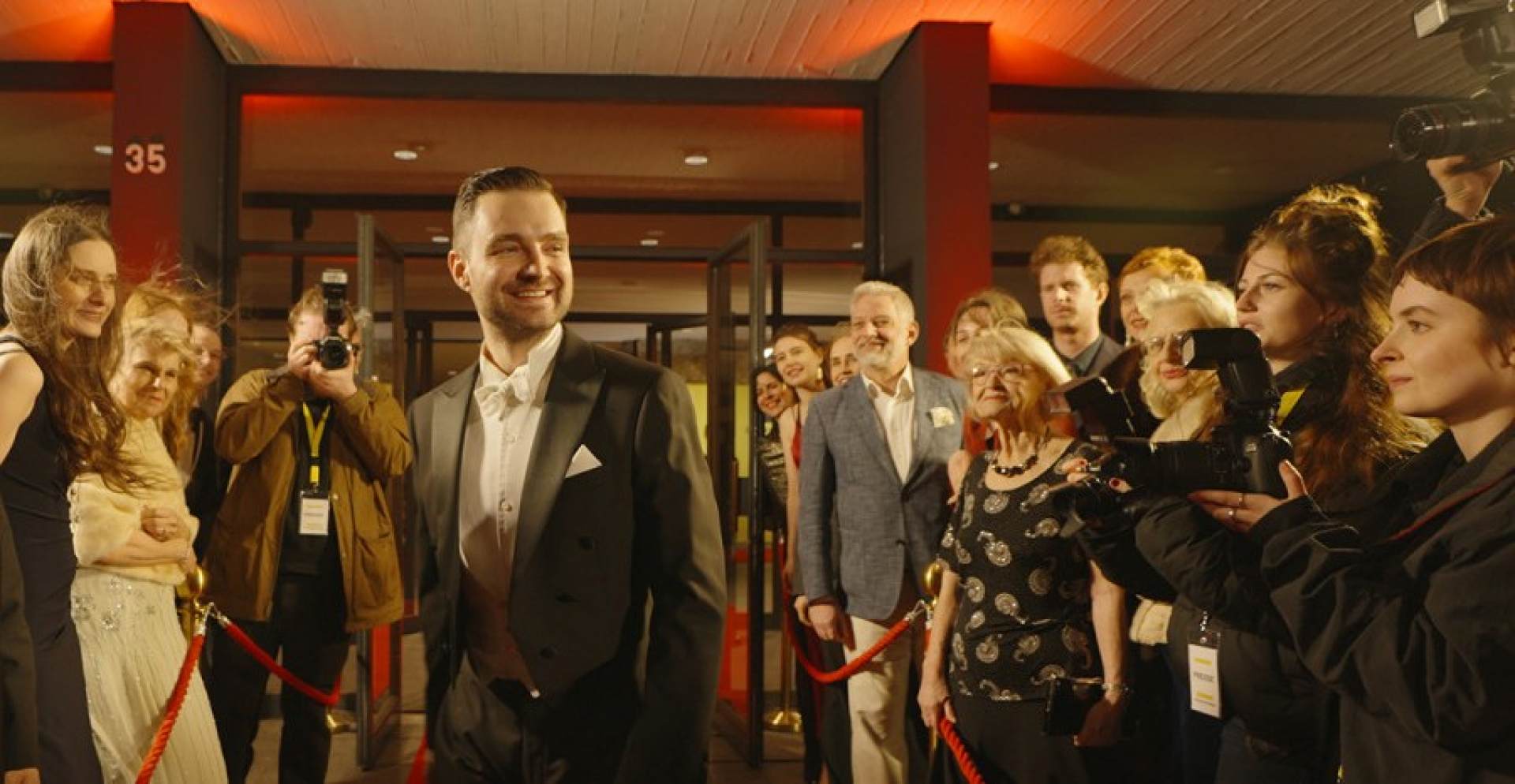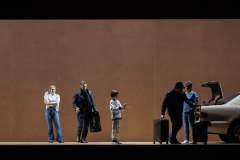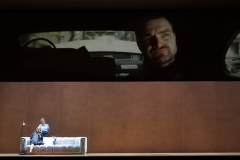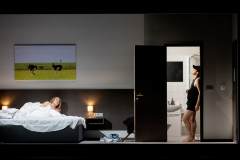Intermezzo
Mo | Tu | We | Th | Fr | Sa | Su |
Richard Strauss in March
Intermezzo - Richard Strauss [1864 – 1949]
A bourgeois comedy with symphonic interludes in two acts
Libretto by Richard Strauss
First performed at the Schauspielhaus Dresden on 4 November 1924
Premiere at the Deutsche Oper Berlin on 25 April 2024
Recommended for ages 15 and up.
Duration: 2 hours 45 minutes | 1 interval
In German with German and English surtitles
Pre-performance lecture (in German): 45 minutes prior to each performance
Synopsis
Setting: Vienna and Grundlsee during a 1920s winter
The composer Storch is leaving for a conducting tour, and his wife Christine helps him pack, arguing and nagging along the way. Seeking relief from loneliness she goes tobogganing and collides with a skier, a young Baron who befriends her. They dance together at a ball and she arranges for him to lodge in the house of her notary. The friendship is soured when the Baron asks Christine for financial assistance. She opens a letter, supposedly for her husband, from a lady arranging an assignation. She immediately telegrams Storch demanding they part for ever. In tears, she seeks solace in her son's bedroom but he defends his father.
Storch is playing skat with friends in Vienna when the telegram arrives, and is bewildered by the accusations. Stroh, a conductor friend, admits that he knows the lady and surmises that his and Storch's surnames must have been confused. Christine visits the notary to demand a divorce, but he is unwilling to pursue the matter. She sends the Baron to Vienna to gather evidence of infidelity. Packing to leave, she receives a telegram from her husband saying that Stroh will explain the misunderstanding. Even after Stroh's visit she is reluctant to accept the truth. Storch returns home, and an argument ensues. The Baron arrives with evidence that Stroh rather than Storch had indeed known the lady and Christine dismisses him, assured that her husband is blameless. Storch forgives her anger and teases her about her dalliance with the Baron. Husband and wife declare a renewed love.
Program and cast
Conductor: Sir Donald Runnicles
Director: Tobias Kratzer
Set-design, Costume-design: Rainer Sellmaier
Light-design: Stefan Woinke
Video: Jonas Dahl
Video: Janic Bebi
Dramaturgy: Jörg Königsdorf
Court Conductor Robert Storch: Philipp Jekal
Christine, his wife: Maria Bengtsson
Franzl, her little son: Elliott Woodruff
Anna, the Chambermaid: Anna Schoeck
Baron Lummer: Thomas Blondelle
Kapellmeister Stroh: Clemens Bieber
Notary: Markus Brück
Wife of the notary: Nadine Secunde
Kommerzienrat: Joel Allison
Judicial Council: Simon Pauly
Kammersänger: Tobias Kehrer
Resi: Lilit Davtyan
Orchestra: Orchester der Deutschen Oper Berlin
Deutsche Oper Berlin
The Deutsche Oper Berlin is an opera company located in the Charlottenburg district of Berlin, Germany. The resident building is the country's second largest opera house and also home to the Berlin State Ballet.
The company's history goes back to the Deutsches Opernhaus built by the then independent city of Charlottenburg—the "richest town of Prussia"—according to plans designed by Heinrich Seeling from 1911. It opened on November 7, 1912 with a performance of Beethoven's Fidelio, conducted by Ignatz Waghalter. After the incorporation of Charlottenburg by the 1920 Greater Berlin Act, the name of the resident building was changed to Städtische Oper (Municipal Opera) in 1925.
Deutsches Opernhaus, 1912
With the Nazi Machtergreifung in 1933, the opera was under control of the Reich Ministry of Public Enlightenment and Propaganda. Minister Joseph Goebbels had the name changed back to Deutsches Opernhaus, competing with the Berlin State Opera in Mitte controlled by his rival, the Prussian minister-president Hermann Göring. In 1935, the building was remodeled by Paul Baumgarten and the seating reduced from 2300 to 2098. Carl Ebert, the pre-World War II general manager, chose to emigrate from Germany rather than endorse the Nazi view of music, and went on to co-found the Glyndebourne opera festival in England. He was replaced by Max von Schillings, who acceded to enact works of "unalloyed German character". Several artists, like the conductor Fritz Stiedry or the singer Alexander Kipnis followed Ebert into emigration. The opera house was destroyed by a RAF air raid on 23 November 1943. Performances continued at the Admiralspalast in Mitte until 1945. Ebert returned as general manager after the war.
After the war, the company in what was now West Berlin used the nearby building of the Theater des Westens until the opera house was rebuilt. The sober design by Fritz Bornemann was completed on 24 September 1961. The opening production was Mozart's Don Giovanni. The new building opened with the current name.

 EN
EN DE
DE IT
IT FR
FR ES
ES RU
RU JP
JP RO
RO
 Seating plan
Seating plan 



